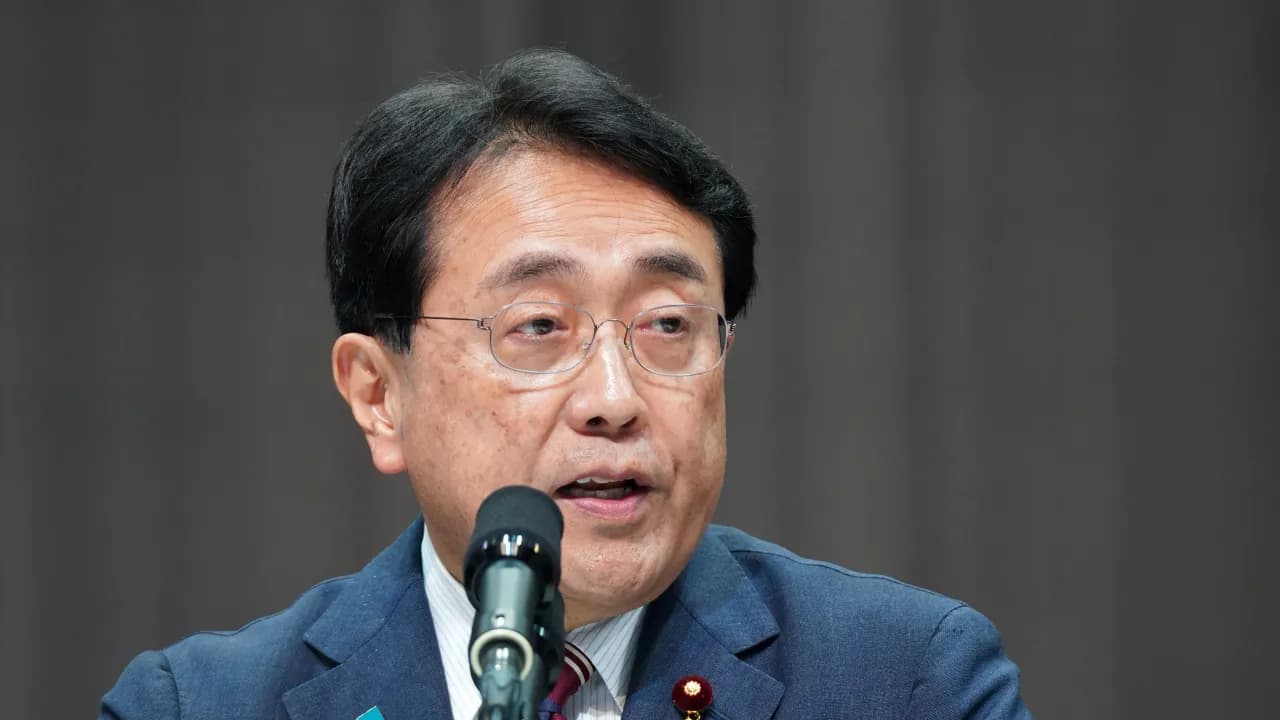Akazawa’s last-minute cancellation of a scheduled U.S. visit highlights ongoing delays in implementing the July trade deal, which also includes a $550 billion U.S. investment fund tied to the agreement.
Japan’s top trade negotiator, Ryosei Akazawa, said he expects to make at least one more visit to the U.S. before President Donald Trump issues an executive order to lower tariffs on Japanese goods, even as uncertainty lingers over when the agreed cuts will take effect.
Akazawa abruptly canceled a planned U.S. trip on Thursday, saying further administrative-level talks were required. Japanese officials are already in Washington holding discussions with their American counterparts, Bloomberg reported.
The cancellation underscores delays in implementing a deal struck on July 22, under which the U.S. agreed to lower tariffs on cars and auto parts to 15% from 25% and to end the stacking of existing duties on top of a 15% across-the-board levy.
Akazawa has said the revisions and cuts should take place simultaneously and urged Washington to act “as soon as possible, even a day sooner, or even a moment sooner.”
While the impact of stacked tariffs is expected to be minor, the issue has sparked criticism of Prime Minister Shigeru Ishiba’s handling of the negotiations following an election setback. Akazawa has indicated the U.S. would refund any overpaid duties once the new framework is in place.
The Trump administration, meanwhile, is focused on launching a $550 billion U.S. investment vehicle tied to the agreement, which Commerce Secretary Howard Lutnick has said could be disclosed this week.
Details of how the fund will operate remain unclear, with Japan expected to contribute under a 90:10 split.
South Korea agreed to a similar trade pact with Washington in late July, including a $350 billion fund, and has already announced $150 billion in additional U.S. investments.
Akazawa has previously pointed to the U.K. trade deal, which took 54 days to take effect, hinting Japan’s deal may not be implemented until at least mid-September.
On Stocktwits, retail sentiment was ‘bullish’ for the SPDR S&P 500 ETF Trust (SPY) with ‘low’ message volume, while it was ‘bearish’ for the Invesco QQQ Trust (QQQ) with ‘low’ volume and for the iShares MSCI Japan ETF (EWJ) with ‘high’ volume.
So far this year, SPY is up 11.4%, QQQ has gained 13.2%, while EWJ has outperformed with a 19.1% rise.
For updates and corrections, email newsroom[at]stocktwits[dot]com.<
